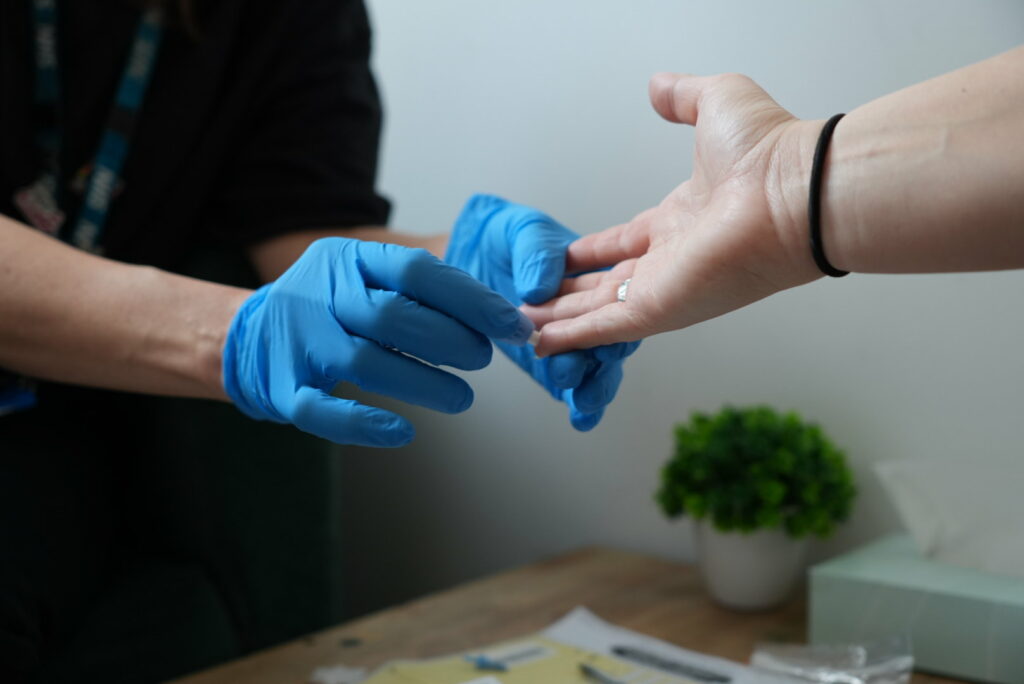26.11.24
4 minute read

This is a huge step forward for Bristol’s services, and the people they support.
Our journey to micro-elimination began four years ago and continued through the pandemic. While this was challenging, we persevered and evolved as a service to get to where we are now. We completely remodelled Blood-Borne Virus (BBV) testing, allowing us to send test kits to people’s homes, which was a first for our service. This flexibility not only enabled testing to continue but also provided testing to people who may have otherwise had to wait years to be tested face-to-face.
With the help of our partner organisations, BDP’s continued commitment to BBV testing over the last four years has made micro-elimination possible.
Reaching micro-elimination of Hepatitis C is a massive achievement for Bristol and more importantly for our service users, many of whom are very vulnerable and find accessing health care services extremely challenging.
Jess Oke, BDP’s Bloodborne Virus Nurse describes what micro-elimination actually means for Bristol.
“It means we have a very clear picture of who has been tested and we can safely say over 90% of people who need treatment are actually accessing it. This means people are being cured of Hep C and once this happens they can’t pass it on. Letting people know their treatment has been successful is one of the best parts of my job.
I’d like to say a personal thank you to every staff member who has gotten behind this initiative. It’s not been easy, but we have all worked together to make it happen. There’s been commitment at all levels. Multi-agency working has helped us achieve our goal — UHB Hepatology, Hep C Trust, Hep C U Later, and organisations allied to ROADS.
Being part of Hep C elimination in Bristol is a once-in-a-career experience that I’m incredibly proud of, and maintaining our elimination status will be the next challenge.”
Hepatitis C (Hep C), is a blood-borne virus that affects the liver and is transmitted when the virus enters the bloodstream.
The most common mode of transmission in the UK is injecting drug use. Equipment used to inject like needles, spoons and water become contaminated with Hep C and when used by someone else, can be transmitted or passed on. Other risks include unprotected sex, mother-to-child, and sharing razors or toothbrushes.
The Hep C virus attacks your liver, which is the second biggest organ in your body and is responsible for many different functions. Over time, Hep C can cause liver inflammation and scarring that can lead to moderate liver damage (fibrosis) and severe liver damage (cirrhosis). Cirrhosis can be fatal, and those living with cirrhosis are at higher risk for liver failure and liver cancer.
Symptoms of Hep C can vary. Most people who have Hep C are asymptomatic, but some common symptoms include:

If you’re concerned you’ve been at risk of contracting Hep C, you can access testing from these places in Bristol:
Hepatitis C is treated with Direct-Acting Antivirals (DAAs), which are oral medications or ‘pills’ that are safe, effective, and have few side effects.
Accessing treatment in Bristol is very straight forward with short waiting times and a medication delivery service for vulnerable people. Treatment courses are 8 to 12 weeks long with most people being prescribed one pill a day. Efficacy or cure rates are around 95%.
Want to find out more about Hep C?
26.11.24
4 minute read

Bristol Drug Project
BDP have been operating in Bristol for the last 39 years. During this time, we’ve made it a priority to evolve our service...